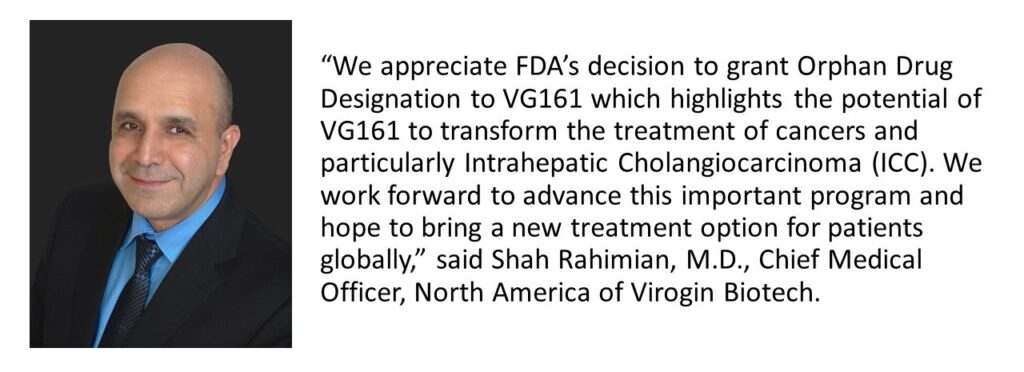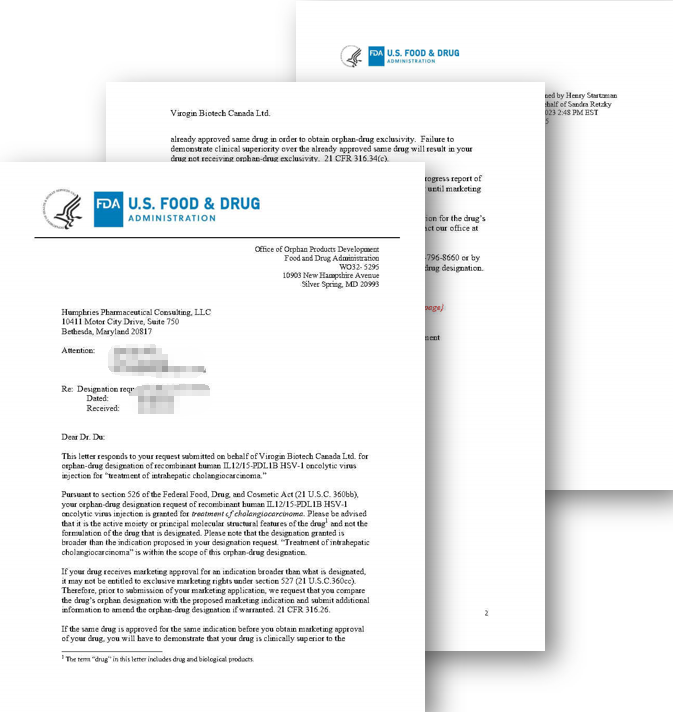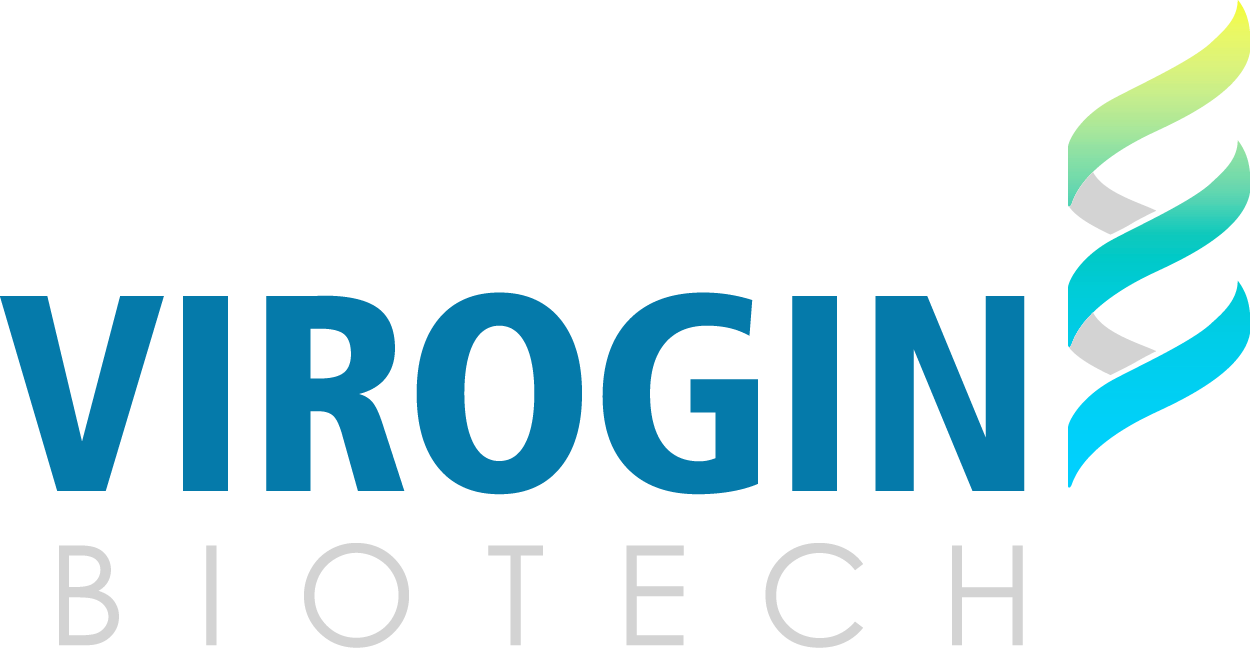Vancouver, British Columbia, February 12, 2023
Virogin Biotech announced that it has received a formal letter response from the US Food and Drug Administration (FDA) Office of Orphan Products Development, of which its Class I innovative oncolytic virus product, VG161, has been granted for treatment of Intrahepatic Cholangiocarcinoma (ICC).
Intrahepatic Cholangiocarcinoma (ICC) is a rare tumor that arises from the epithelial cells of intrahepatic bile ducts. ICC accounts for about 10%-15% of primary malignant liver cancer, often known to be associated with abdominal pain, nausea, jaundice, and fever. ICC occurs mostly in people over the age of 50, and males have a slightly higher incidence of ICC. [1]
ICC is the second most common primary liver tumor after hepatocellular carcinoma. In recent years, studies have shown a marked increase of ICC. Due to the uncertainty of radiotherapy and chemotherapy, surgical resection is the only curative treatment, despite a high rate of recurrence. Hence, effective ICC therapeutic drugs will bring hope to patients all over the world. [2]
This orphan product approval assesses the VG161 clinical trial results carried out in China. ICC patients who received VG161 injection have yielded promising survival data.
As a product of Virogin’s Synerlytic™ technology platform, VG161 has successfully completed Phase I clinical trial, and entered Phase II US clinical trial in 2022. In the same year, VG161 was approved by the Center for Drug Evaluation (CDE) in China for Phase I/II combination trial. The safety and efficacy results demonstrated by this product are important factors for obtaining orphan drug qualification.
After obtaining the orphan drug grant, VG161 will be able to receive clinical research guidance and support from the FDA. If the product receives marketing approval in the future, VG161 may also enjoy exclusive policies such as tax credits for qualified clinical trials, exemption from user fees and potentially seven years of US market exclusivity.

In 2023, Virogin will further explore the clinical efficacy of VG161, establishing a solid foundation for clinical research that is dedicated to subsequent series of oncolytic virus products.
While steadily advancing itsglobal clinical strategy, Virogin’s innovative research capabilities have been demonstrated with its robust preclinical-to-clinical translation and promising clinical research results.
[1] Shaib YH, El-Serag HB, Davila JA, et al. Risk factors of intrahepatic cholangiocarcinoma in the United States: a case control study. Gastroenterology 2005; 128:620–626
[2] Yang Jian and Lu-Nan Yan. Current status of intrahepatic cholangiocarcinoma. World Journal of Gastroenterology 2008; 14(41): 6289–6297
About Virogin Biotech:
Virogin is developing two different platforms that are highly complementary: an oncolytic HSV-1 platform armed with multiple therapeutic payloads and genomic regulation to increase oncolytic effect and modulate the tumor microenvironment; and a discovery-stage mRNA tumor vaccine platform consisting of tumor vaccines to be used in combination with oncolytic viruses to augment anti-tumor activity.


